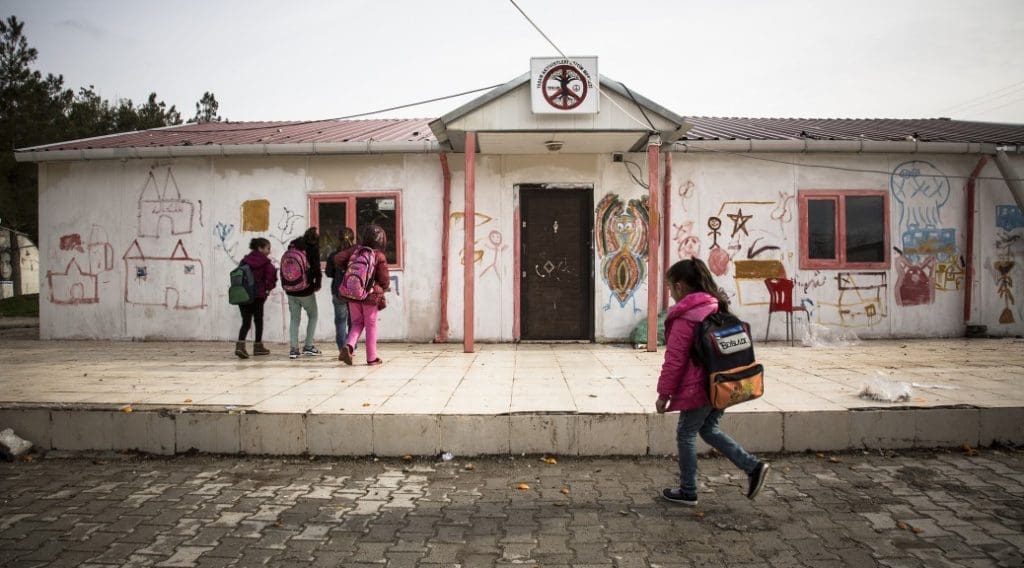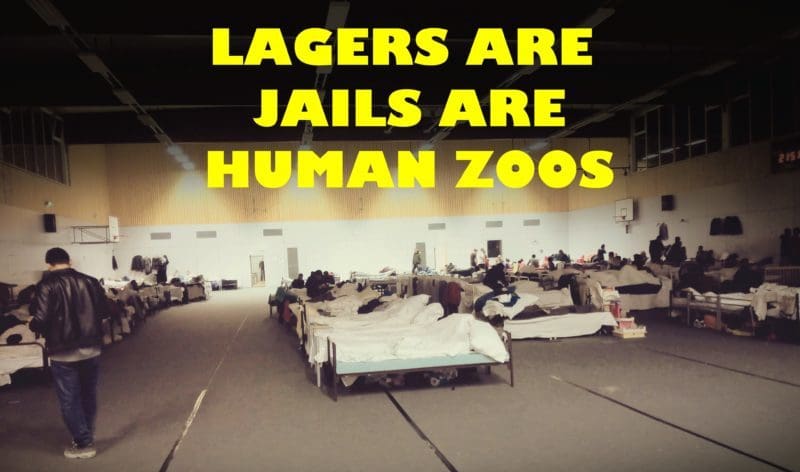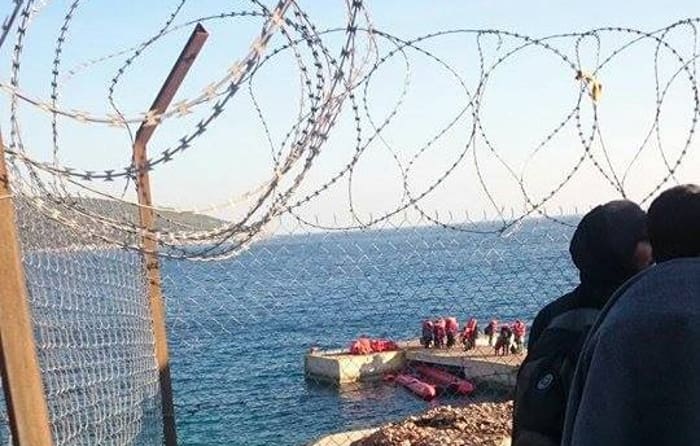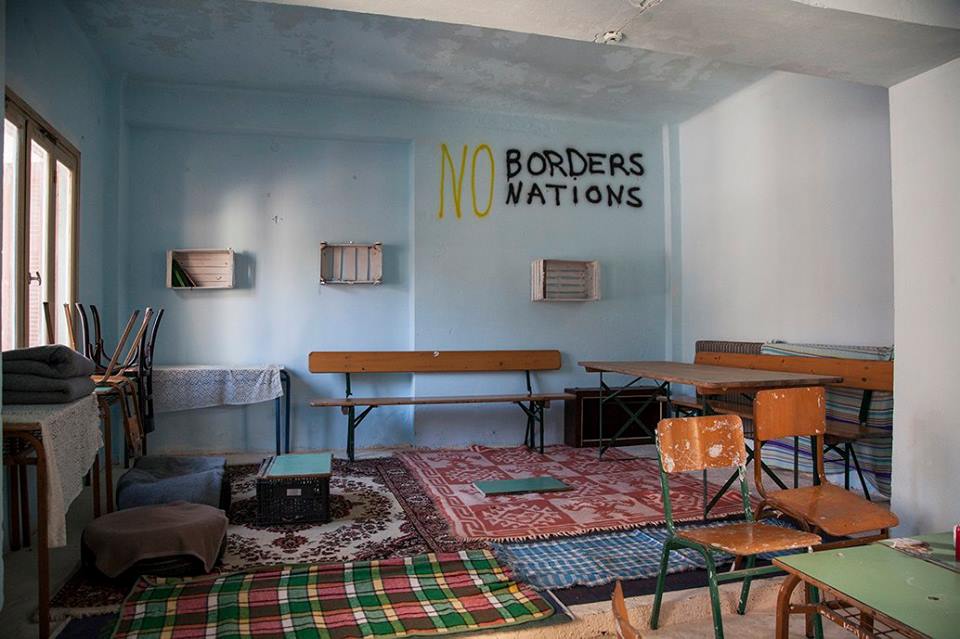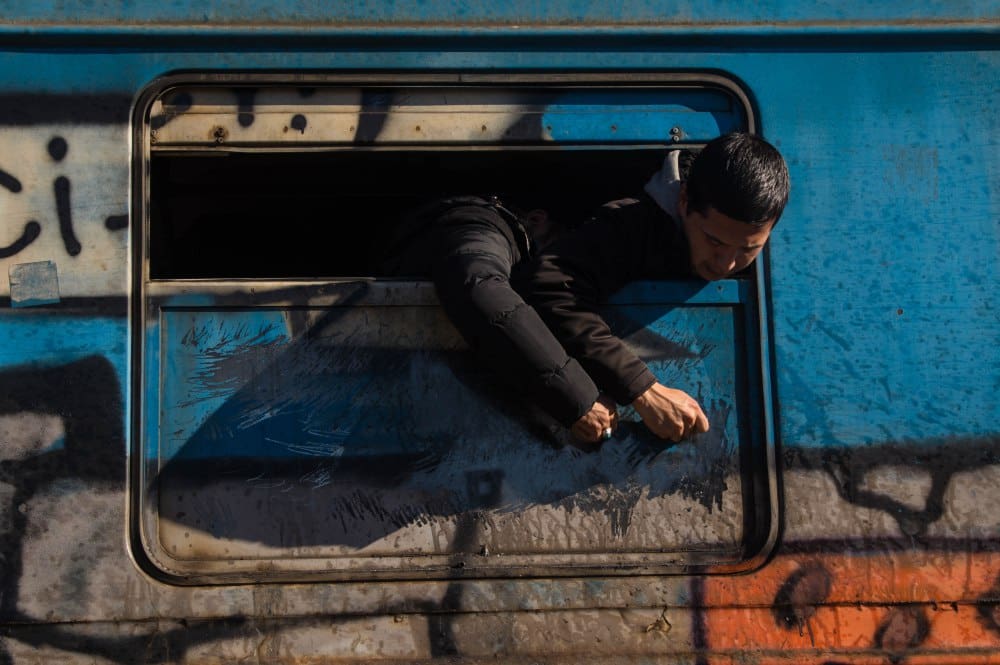“There Is No Future For Us in the Middle East.”
Peter Schaber for Lower Class Magazine
21 January 2016 (deutsche Originalversion ist hier einzusehen)
One sentence is heard more often than any other in the large refugee camp twenty minutes outside of the Kurdish metropolis Diyarbakır in southeastern Turkey: “We want to go to Europe.”
Every last resident here is Yezidi, a religious group that has been singled out for especially brutal persecution by the Islamic State (ISIS). When ISIS invaded areas settled by Yezidis in 2014, many fled to Mount Sinjar.
“My family did not have a car,” recalls Mahmut, who has been working here in the camp for a year. “We had to get to the mountain on foot. On the way, we were stopped by an armored vehicle full of ISIS fighters. They yelled at us that we’d better get moving, but my uncle is paralyzed, and we couldn’t go any faster. So they shot him, right in front of the whole family.”
The trauma of their long history of persecution has burned itself deeply into the collective consciousness of Yezidis. “We cannot live among Muslims. There is no future for us in the Middle East. Again just recently, a famous imam reissued the call that a cleansing of Yezidis must be carried out every six years. There is no future for us in this region. They hate us. For them, we are not human.”

The atrocities that the Yezidis have suffered at the hands of jihadist militias seem limitless: women have been raped and sold into slavery; young men executed. “Even our own neighbors—most of them, even—participated in the pogroms,” reports Mahmut. “They knew us. But when ISIS showed up, they rushed to take their side. They would tell the fighters which houses had pretty women in them.”
For women above all, the suffering must have been immeasurable. Back when this camp was still under construction, and city government helpers would show up who were bearded, the women ran from them. It took a long time to build trust. Eventually they did, though.
“We do what we can.”
This was accomplished because the local government, comprised by the leftwing Kurdish DBP, is trying to provide as much support as necessary without impinging on the Yezidis’ own freedom and self-organization. Every person receives 45 lira per day; food and basic infrastructure are provided. The camp, made up of tents in which four to six people live together, has a large athletic field with a football pitch as well as basketball and tennis courts, a medical station, psychological counseling, and a women’s center. Children can receive daily lessons in two schoolhouses: from Yezidi teachers during the week, with voluntary Kurdish courses on weekends.

“Sure, it’s a camp, and camps are never places anyone wants to live,” a city government helper, Müzzeyin, tells us. “But we do what we can. The people who come here have been through horrific things. We are trying to give them what they need to live.
“But the most important thing is that they can move around freely,” she continues. The camp is open, people can come and go as they please. There is no military-like security here. “Our goal is to guide people back into their lives.”
Ironically, the local government’s regard of the situation here is the exact reverse of that in Germany. Indeed, the the leftwing Kurdish parties and the the helpers in camp want the people to stay. It is the Yezidis themselves who don’t want to. They want to go where the governments don’t want them: to Europe, especially Germany.
The reason is understandable: the fear runs deep that in this region they could be victims of a massacre at any time. The Yezidis’ distrust of nearly all parties, organizations, and especially of Sunni Muslims, is great.
Nowhere is safe
With one major exception: the same people who are referred to as “terrorists” in Turkey, Europe, and the US. That is to say, the Kurdish liberation movement, the PKK, and its sister organization in Syria, the YPG, are held in high regard here. They fought to open the corridor through Syria and northern Iraq that the Yezidis from Sinjar were able to use to escape.
Here in Diyarbakır as well, it is not with the local population that there are problems—it is with the state. The escalation of the war between Ankara and Kurdish resistance fighters has made itself felt. If Yezidis go into town, they are greeted with the atmosphere of war. A boy, frightened at the sound of bombs, asked if ISIS was on its way here, too.

“In 2014 there were many street clashes in the city because of Kobanê,” remembers Bisler Icli, a coordinator at the camp. “The police attacked demonstrators. At one point, over 800 people left camp in the space of two days, because they thought the war had come here. Now they rarely go into town at all, because [the city district] Sur is under bombardment.”
But it’s not only the presence of war that unsettles the fleeing. “The state does not support us here,” Icli continues. “They won’t issue people travel papers. And a very important thing, namely healthcare, is a major problem. We’re doing the best we can, but the state sees no need to provide access to free care. So people don’t feel secure in that regard either.”
Fear
The Kurdish Movement is also trying to include the refugees in politics and protest. This is often difficult, because they are deeply afraid. “We Kurds have also been through a lot,” says Biser Icli. “But even for us it’s hard to conceive of what these people have experienced. So we understand their hesitation at demonstrations.”
While the Yezidi refugees only rarely take part in actions in the city, there is plenty of political activity in camp: on International Women’s Day there is a rally; the anniversary of the liberation of Sinjar is also celebrated. When funeral processions for fallen guerillas pass the camp, residents gather, clap, and shout slogans.

Still, these cautious gestures do not change the fact that the Yezidi community is afraid. Their fear, and the feeling of being fundamentally unwelcome among Muslims, has been somewhat alleviated by the understanding shown by Kurdish camp helpers—but it has not disappeared. And it is this fear that drives them towards Europe, to countries in which they hope to feel safe.
Translated by Antidote
All images: O-Young Kwon | aboutideas.net via Lower Class Magazine

